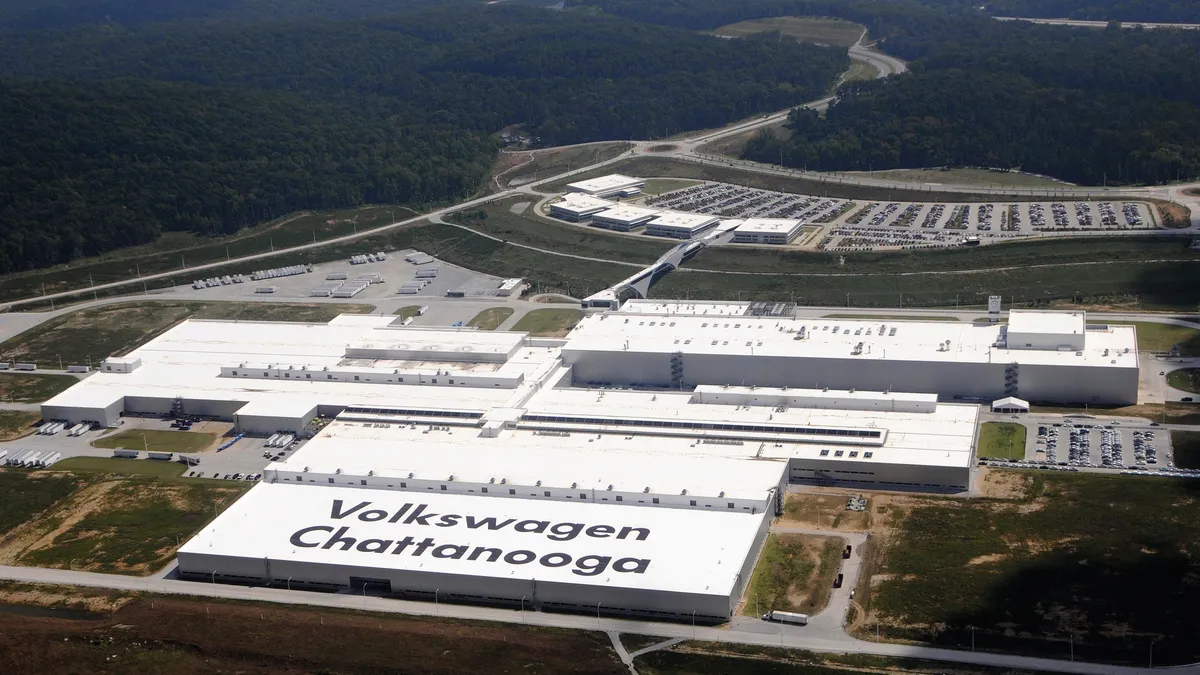Dive Brief:
- The United Auto Workers union and nonunion employees at Volkswagen Group’s assembly plant in Chattanooga, Tennessee, are filing another unfair labor practice complaint against the automaker, the UAW said Monday.
- The union said VW’s social media, dress code and flier distribution policies are “unlawful” and “have a chilling effect on workers’ rights” to publicly discuss labor conditions and organize.
- More than 30% of workers, or over 1,000 individuals, at the Chattanooga plant recently signed union cards, according to the UAW.
Dive Insight:
Last week, the UAW and autoworkers employed by Honda, Hyundai and VW filed unfair labor complaints against the automakers for union-busting activities. The union claims employees faced retaliation from management for attempting to organize their co-workers.
On Monday, UAW President Shawn Fain visited the Chattanooga plant, accompanying VW workers and civic leaders as they demanded the company end its purported union-busting activities.
VW denies the allegations.
“Volkswagen refutes any claims of union-busting, intimidation or illegal violations of worker rights at our Chattanooga plant. Labor representation is part of our company’s culture; half of our global Supervisory Board members are labor representatives,” the company said in an emailed statement. “We respect our workers’ right to decide the question of union representation. And we remain committed to providing accurate information that helps inform them of their rights and choices.”
The UAW launched a campaign to organize more than a dozen nonunion automakers, including VW, in the U.S. after winning major concessions from the Detroit Three automakers, including 25% wage hikes and the right to strike over plant closures.
The organizing efforts cover nearly 150,000 nonunion workers and could nearly double the UAW’s membership, potentially increasing its power in the U.S. auto industry.
In recent weeks, Honda, Hyundai, Nissan, Subaru and Toyota said they would raise wages for hourly workers in the U.S. Several experts predicted nonunion, foreign-owned automakers would feel pressure to raise wages once the UAW negotiated its new labor contracts with General Motors, Ford Motor Co. and Stellantis.














